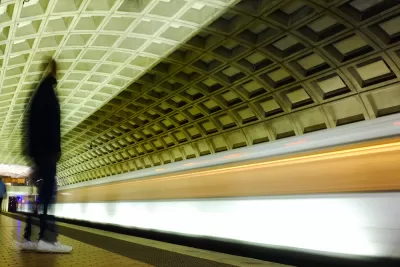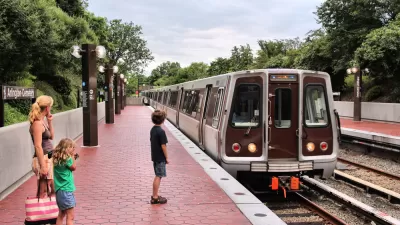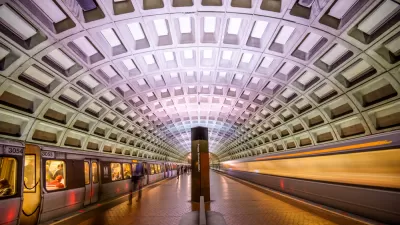Greater Greater Washington's "Metro Reasons" column analyses the latest ridership data from the D.C. Metro system. Riders have not returned to the system after the SafeTrack repair program concluded in 2017.

The Washington Metropolitan Area Transit Authority (Metro) released new financial data this week that sheds light on the ongoing decline of ridership on the transit system's buses and trains.
Stephen Repetski reports on the latest data, finding plenty to be concerned about. The dominant narrative, however, is that riders are not returning to the system now that the SafeTrack repair program has concluded:
Through the third quarter of FY 2018 (July 2017 through March 2018), the average number of weekday trips taken on Metrorail was 598,000, according to the agency — a 0.1% increase from last year during which SafeTrack shuttered portions of the rail system, but 2.1% below what Metro budgeted. Average weekday ridership in May 2017 was 612,000 while May 2016’s numbers were 639,000.
Repetski also focuses on the ridership numbers on the system's bus routes, also in decline, neatly following a fare increase at the beginning of the 2018 fiscal year. Metro bus ridership declined in larger numbers in Virginia.
FULL STORY: Metro Reasons: Metro’s bus and rail ridership has taken a dive

Planetizen Federal Action Tracker
A weekly monitor of how Trump’s orders and actions are impacting planners and planning in America.

Maui's Vacation Rental Debate Turns Ugly
Verbal attacks, misinformation campaigns and fistfights plague a high-stakes debate to convert thousands of vacation rentals into long-term housing.

Restaurant Patios Were a Pandemic Win — Why Were They so Hard to Keep?
Social distancing requirements and changes in travel patterns prompted cities to pilot new uses for street and sidewalk space. Then it got complicated.

Charlottesville Temporarily Has No Zoning Code
A judge ordered the Virginia city to throw out its newly revised zoning code, leaving permitting for new development in legal limbo.

In California Battle of Housing vs. Environment, Housing Just Won
A new state law significantly limits the power of CEQA, an environmental review law that served as a powerful tool for blocking new development.

Boulder Eliminates Parking Minimums Citywide
Officials estimate the cost of building a single underground parking space at up to $100,000.
Urban Design for Planners 1: Software Tools
This six-course series explores essential urban design concepts using open source software and equips planners with the tools they need to participate fully in the urban design process.
Planning for Universal Design
Learn the tools for implementing Universal Design in planning regulations.
Heyer Gruel & Associates PA
JM Goldson LLC
Custer County Colorado
City of Camden Redevelopment Agency
City of Astoria
Transportation Research & Education Center (TREC) at Portland State University
Jefferson Parish Government
Camden Redevelopment Agency
City of Claremont





























